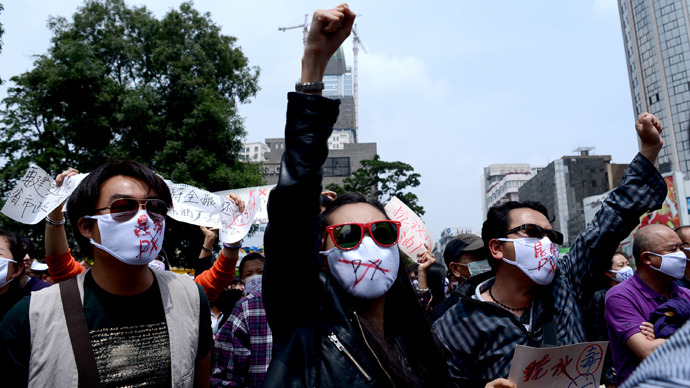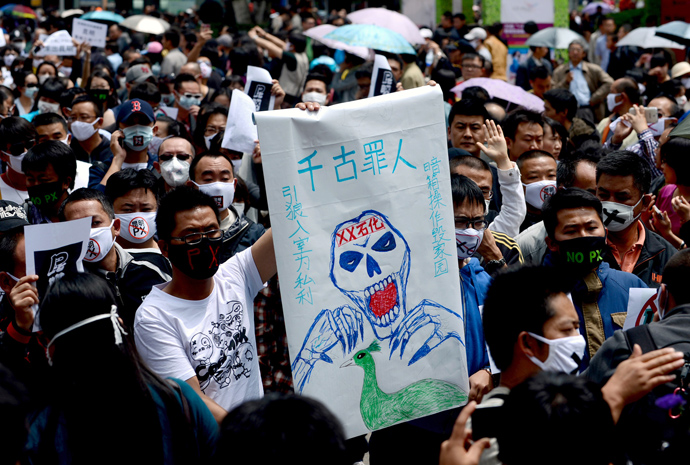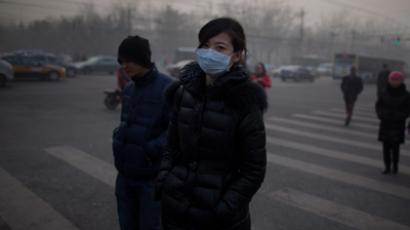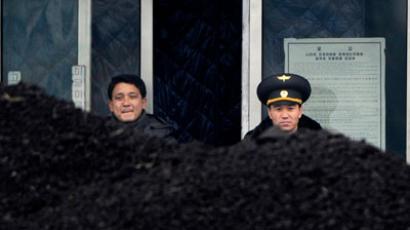‘We want to survive’: Hundreds protest planned chemical plant in China

Hundreds of people took to the streets of the Chinese city of Kunming on Saturday to protest against plans to build a factory that will produce the toxic chemical paraxylene (PX). The chemical is used for making fabrics and plastic bottles.
"Give me back a beautiful Kunming. We want to survive, we
want health, get out of Kunming," read the banners.
Some estimated the crowd to be up to 2,000 strong, but Xinhua news
agency reported that around 200 people had gathered to protest.
Many wore masks printed with slogans including “No PX in
Kunming.” There were no reports of any violence at the protest,
which also attracted around 1,000 onlookers.
China National Petroleum Corp, the country’s largest oil and gas
producer and supplier, announced in February that it had approved
the building project. The refinery is set to produce gasoline,
diesel, various chemicals and fertilizers, and PX, the company said
in its submission to the National Development and Reform
Commission.
The factory will be located at Anning in Kunming Prefecture, Yunnan
Province. It is located 17 miles southwest of Kunming, a city of
6.4 million people.
Also on Saturday, police lined the streets of Chengdu – the capital
of China’s Sichuan province. The heavy police presence was prompted
after residents planned to protest a nearby chemical plant, locals
told AFP.

"There were a lot of police outside government offices, public spaces and important crossroads in the city," a resident said. He added that fliers posted around the city in recent days had called for a protest but the government called on people not to demonstrate. Locals said online that the protest did not take place.
Saturday’s demonstration in Kunming is the most recent sign that China’s increasingly affluent population has begun to reject the country’s growth model, which is negatively impacting the environment.
Last November, the eastern city of Ningbo suspended a petrochemical project after days of street protests. The year prior, protests against a PX plant in the northeastern city of Dalian forced the city government to suspend it.
China’s fast pace of industrialization – along with its reliance on coal power and quick growth of car ownership – has been blamed for hazardous smog in Beijing. In January, the city’s air pollution levels reached far beyond the permissible level, prompting local authorities to advise residents to stay indoors.














